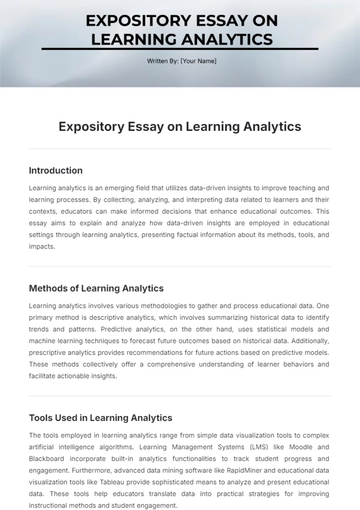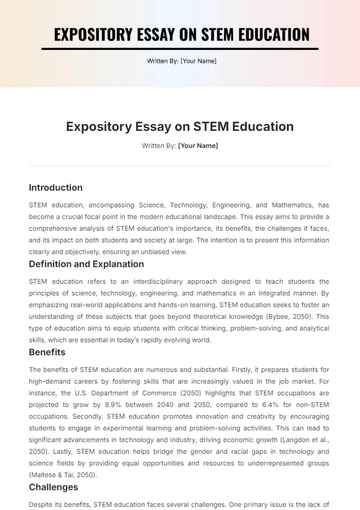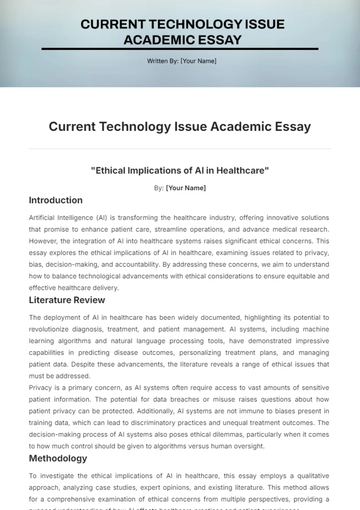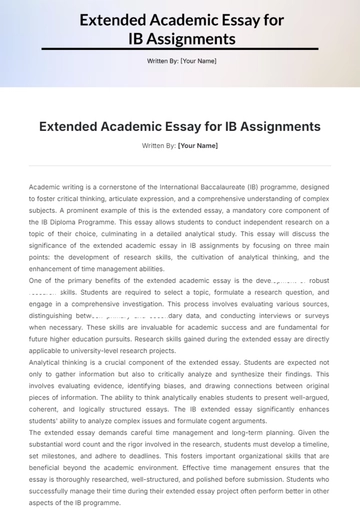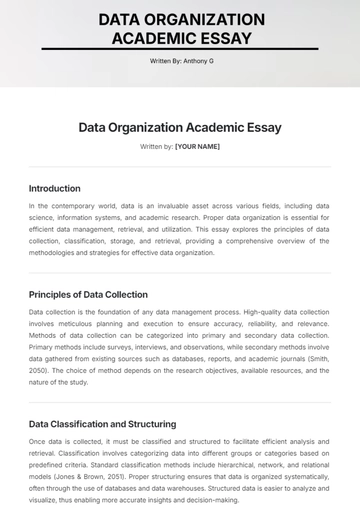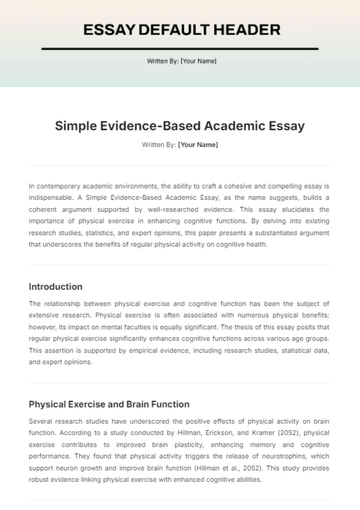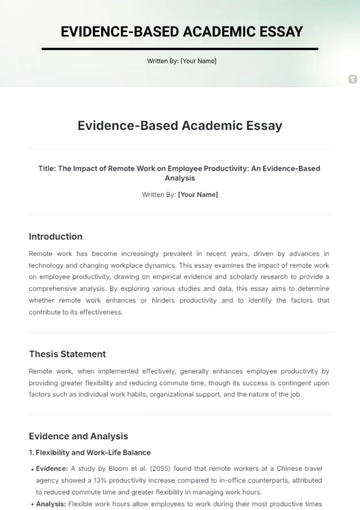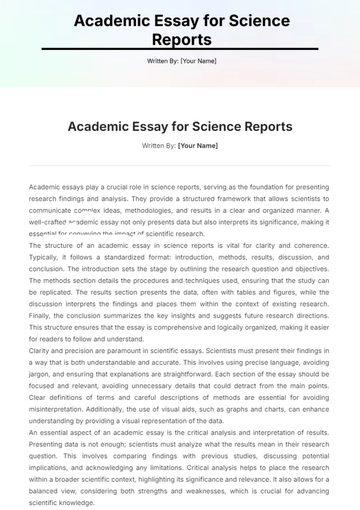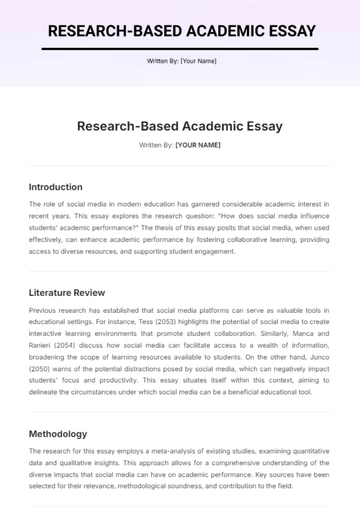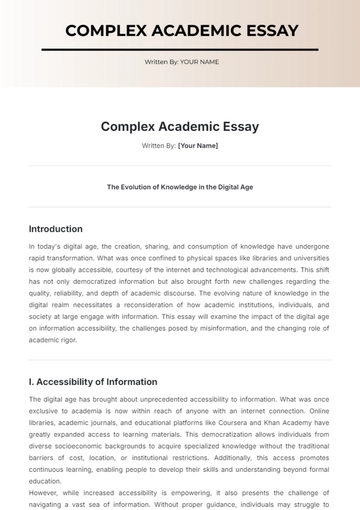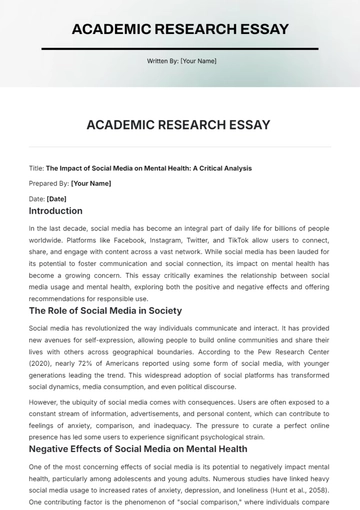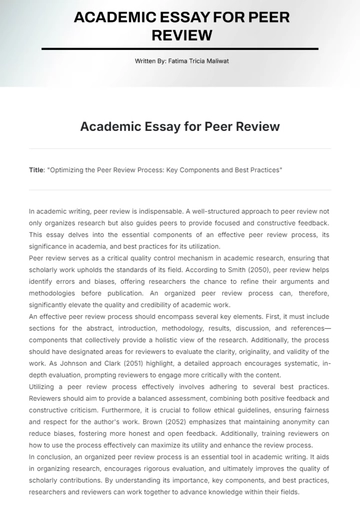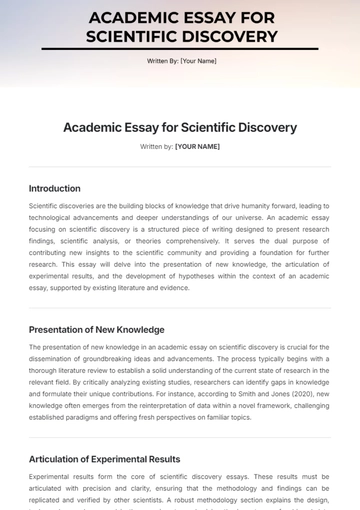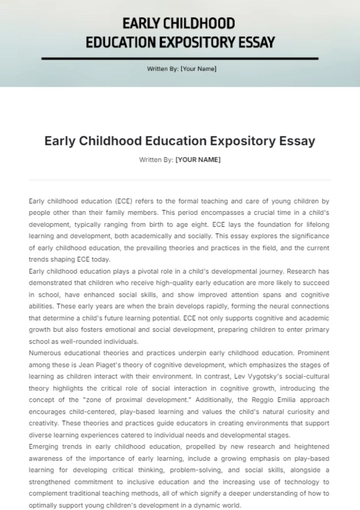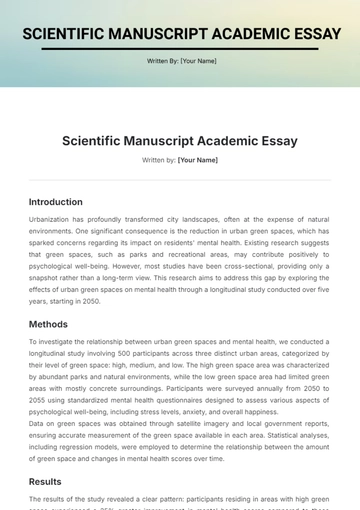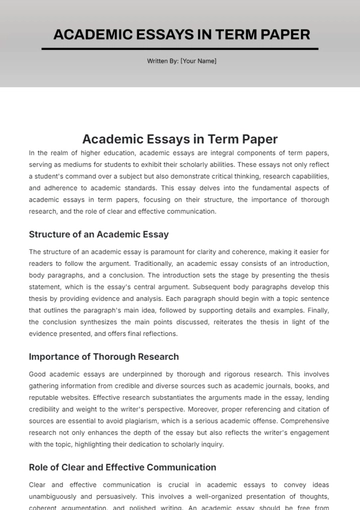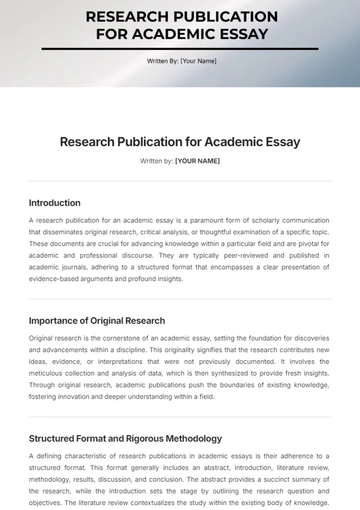Free Current Technology Issue Academic Essay
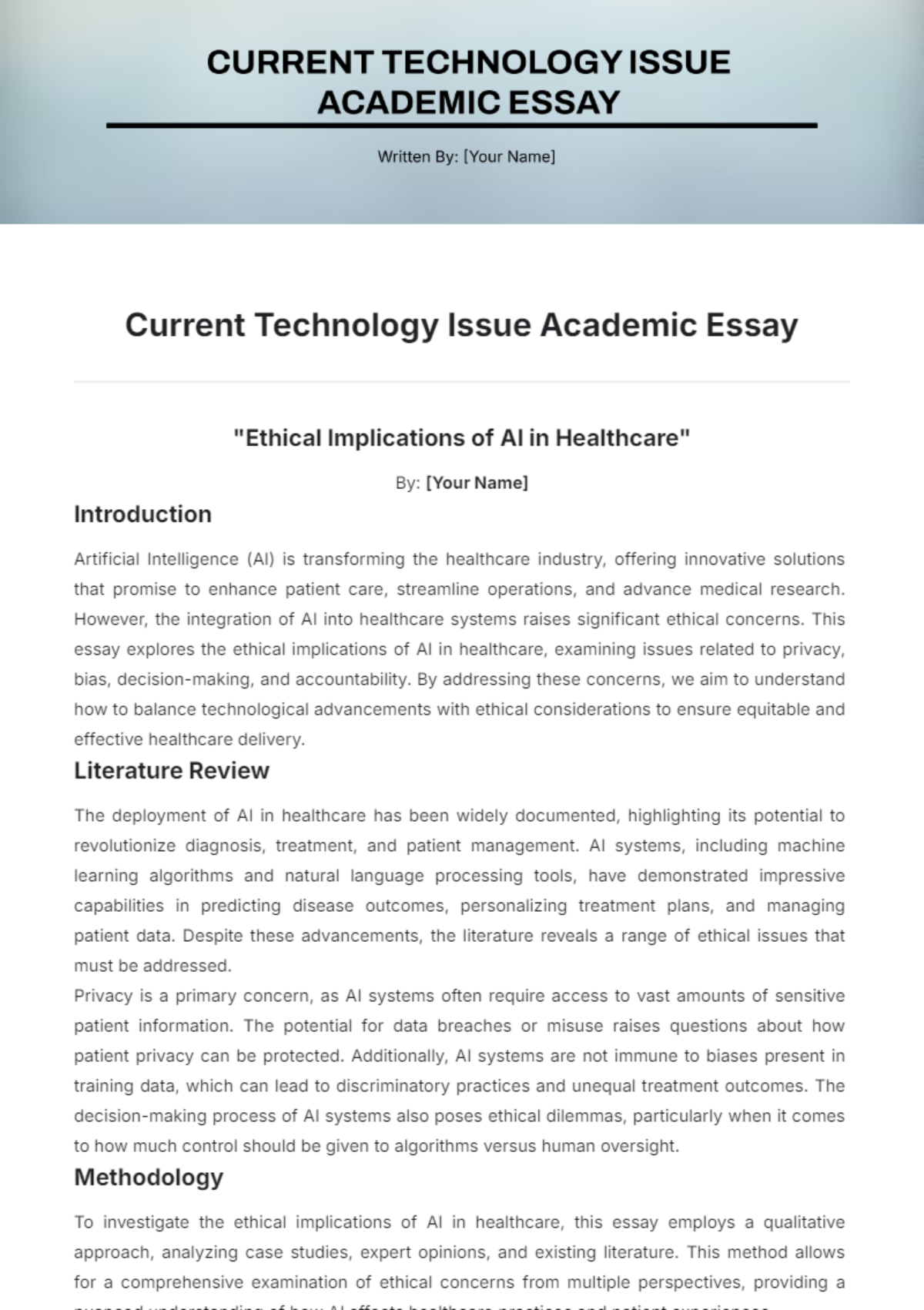
"Ethical Implications of AI in Healthcare"
By: [Your Name]
Introduction
Artificial Intelligence (AI) is transforming the healthcare industry, offering innovative solutions that promise to enhance patient care, streamline operations, and advance medical research. However, the integration of AI into healthcare systems raises significant ethical concerns. This essay explores the ethical implications of AI in healthcare, examining issues related to privacy, bias, decision-making, and accountability. By addressing these concerns, we aim to understand how to balance technological advancements with ethical considerations to ensure equitable and effective healthcare delivery.
Literature Review
The deployment of AI in healthcare has been widely documented, highlighting its potential to revolutionize diagnosis, treatment, and patient management. AI systems, including machine learning algorithms and natural language processing tools, have demonstrated impressive capabilities in predicting disease outcomes, personalizing treatment plans, and managing patient data. Despite these advancements, the literature reveals a range of ethical issues that must be addressed.
Privacy is a primary concern, as AI systems often require access to vast amounts of sensitive patient information. The potential for data breaches or misuse raises questions about how patient privacy can be protected. Additionally, AI systems are not immune to biases present in training data, which can lead to discriminatory practices and unequal treatment outcomes. The decision-making process of AI systems also poses ethical dilemmas, particularly when it comes to how much control should be given to algorithms versus human oversight.
Methodology
To investigate the ethical implications of AI in healthcare, this essay employs a qualitative approach, analyzing case studies, expert opinions, and existing literature. This method allows for a comprehensive examination of ethical concerns from multiple perspectives, providing a nuanced understanding of how AI affects healthcare practices and patient experiences.
Analysis and Discussion
Privacy Concerns
AI systems in healthcare often rely on large datasets, including personal and medical information, to function effectively. While these datasets enable AI to make accurate predictions and recommendations, they also pose risks to patient privacy. The potential for unauthorized access, data breaches, and misuse of sensitive information is significant. Ensuring that AI systems adhere to strict data protection standards and implementing robust security measures are essential steps to mitigate privacy risks.
Bias and Discrimination
AI algorithms are trained on historical data, which can reflect existing biases within the healthcare system. For example, if training data disproportionately represents certain demographics, the AI system may perpetuate these biases, leading to discriminatory outcomes. Addressing bias involves ensuring diverse and representative data sets, as well as regularly auditing AI systems for fairness and accuracy. Ethical AI development requires transparency and accountability to prevent and correct biases that could adversely affect patient care.
Decision-Making and Accountability
AI systems can assist in decision-making by providing data-driven insights, but they also raise questions about accountability. When an AI system makes a recommendation or decision, it is crucial to determine who is responsible for the outcome. Should the responsibility lie with the healthcare provider who uses the AI system, the developers of the AI technology, or the AI system itself? Clear guidelines and accountability structures must be established to address these concerns and ensure that AI is used responsibly in clinical settings.
Conclusion
The integration of AI into healthcare offers numerous benefits but also presents ethical challenges that must be addressed to ensure its responsible use. Privacy concerns, bias and discrimination, and decision-making accountability are critical issues that need careful consideration. By implementing robust privacy protections, addressing biases in AI systems, and establishing clear accountability frameworks, the healthcare industry can harness the potential of AI while upholding ethical standards. Balancing technological innovation with ethical considerations is essential to creating a healthcare system that is both advanced and equitable, ensuring that AI serves to enhance patient care and improve health outcomes for all.
- 100% Customizable, free editor
- Access 1 Million+ Templates, photo’s & graphics
- Download or share as a template
- Click and replace photos, graphics, text, backgrounds
- Resize, crop, AI write & more
- Access advanced editor
The Current Technology Issue Academic Essay Template from Template.net is fully customizable and editable, offering an ideal structure for analyzing and writing about modern tech challenges. This template helps you organize your research, present well-formed arguments, and provide insightful analysis on current technology issues. Easily tailored to any topic, it streamlines the writing process while ensuring a professional and impactful final essay. Perfect for students and tech enthusiasts!

